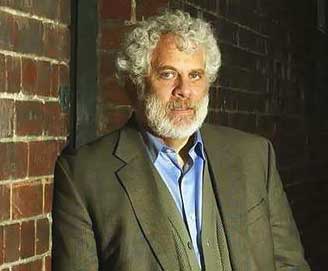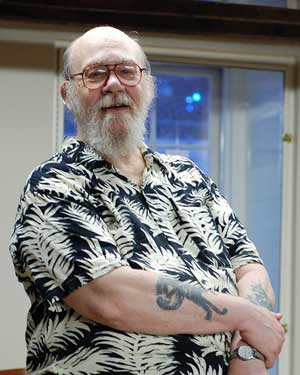The alligator gnawed upon the stray shreds of flesh flapping along the boy’s femur. The boy’s pallid face had long melted into the joyless hearth of the dead. Not a face the alligator would recognize, much less the police upon discovering the chewed up body weeks later. The boy would never know the pleasant furrows that thickened in middle age, the initial panic upon discovering the disappearing hairline, the giddy shock that came from losing virginity, the many mistakes to be made and made again, and the happy realization that came from knowing nothing. The alligator had known some of this in her twenty-two years, loosening many eggs and watching tiny tails spiral away after a mere year. The alligator, however, was not sentient enough to understand the intricate workings of the Judeo-Christian calendar. She could not understand holidays, weekends, or even the two dollar Tuesdays that had been erected ignorantly in her honor (“Grab a Gator beer before seven!” shouted a wet bartender a hundred miles away), and certainly didn’t waste her scalar energies worshiping a god. But she remembered the pokes and prods from the farm and had been actuated by some primal vengeance directed towards any intruders in the glades, whether human, lower on the food chain, or perfunctory nuisances that great jaws could reduce and transmute into acceptable nutritional value. The alligator only consorted with humans from these tertiary vantage points. But the boy and the alligator occupied the same natural realm, shared more in common than they could ever confess to each other. Even if this duo could somehow work out an interspecies communicative conduit. Even if the boy could walk away like a Dickensian cripple, hopping proudly on one good leg while hailing a hackney, and passing along a tale decades later beginning, “Let me tell you about the morning in which I met the alligator.” All the boy and the alligator had at this present moment was crazed conjecture. Sometimes, this was enough to get by when there weren’t any explanations.
Month / July 2008

Kevin Smith vs. The MPAA, Take 2
 Kevin Smith’s forthcoming film, Zack and Miri Make a Porno, is, at least for the moment, rated NC-17 “for some graphic sexuality,” pending appeal. What is exceedingly frustrating here is that the MPAA, true to its character, isn’t being transparent about what this “graphic sexuality” entails. Last month, Seth Rogan spilled some details to the press, reporting that the skirmish between Smith and the MPAA apparently involves a sex scene between a man and a woman. And while News Askew reports that the MPAA is now reassessing the current cut of the film for an appeal, there’s been nothing specific about the situation on Kevin Smith’s blog.
Kevin Smith’s forthcoming film, Zack and Miri Make a Porno, is, at least for the moment, rated NC-17 “for some graphic sexuality,” pending appeal. What is exceedingly frustrating here is that the MPAA, true to its character, isn’t being transparent about what this “graphic sexuality” entails. Last month, Seth Rogan spilled some details to the press, reporting that the skirmish between Smith and the MPAA apparently involves a sex scene between a man and a woman. And while News Askew reports that the MPAA is now reassessing the current cut of the film for an appeal, there’s been nothing specific about the situation on Kevin Smith’s blog.
The MPAA has gone after Smith before, most notably for Clerks, which was originally slapped with an NC-17 rating merely for its raunchy dialogue. But there’s a larger question here about why the MPAA continues to maintain an antediluvian attitude on “decency.” The young audience who will watch this film will likely get their hands on the unedited version (assuming Smith loses this battle) once it hits DVD. But if Smith were to unload the specifics about his situation, going to the press with the same highly detailed fervor that he has before, he could very well reopen the very important debate on why incredibly violent films like Hostel are slapped with an R, while films featuring the naked human body are considered verboten for the shopping mall crowd. But if he can skirt around the appeal, this may not be an issue.
In Praise of “Peep Show”
In the past two weeks, I have wolfed down all five seasons of Peep Show, a dark and frequently hilarious British television series written by Jess Armstrong and Sam Bain (with additional material from the two lead actors). I am now a fan. I am convinced that Armstrong and Bain may very well be the heirs apparent to Ricky Gervais. David Mitchell (no relation to the great author), who plays a portly Tory named Mark, who tries to pick up a woman by describing the battle of Stalingrad in the first episode, and Robert Webb, oozing solipsistic charisma as the rudderless romantic Jez, evoke an especially subtle chemistry that is one of the show’s silent strengths. Like Oscar and Felix, this odd couple bonds through inept bickering. But they also need each other in odd and self-destructive ways to get through the follies of life.
Yes, much of this plays like farce. But Peep Show is very much the antithesis to Friends. And thank goodness. Because good art, even art delivered through the populist medium of television, shouldn’t always involve pining for the expected. The storylines take unexpected turns, veering into truly godawful moments followed by further cringeworthy revelations.
While Peep Show does throw its characters into a few too many stock situations (weddings, pregnancies, relationships), it frequently refuses to take the easy way out. Consider one episode in which Mark’s sister momentarily moves into the flat to recuperate from a marriage on the rocks. Jez is alarmed to learn that his girlfriend has started to spend time with Mark, and it isn’t too long before he sleeps with Mark’s sister out of revenge. Midway through doing the nasty, Jez realizes that his conquest smells like his roommate and even says, “Tickety boo,” one of Mark’s pet phrases, in media Jez so to speak. And this is just the beginning of a series of remarkable and unexpected embarrassments that I wouldn’t dare spoil.
Peep Show is the kind of ballsy television show that is currently unthinkable in America: a program willing to venture fearlessly into uncomfortable truths while likewise relying upon jittery and amateurish camerawork (representing the perspectives of the characters, much like Robert Montgomery’s 1947 first-person film adaptation of Lady in the Lake). Unwanted pregnancy, drunken fellatio, grown men terrified by children, racist drinking buddies, accidental deaths of animals (see the above clip), and wedding disasters are just a few of the subjects the program explores. And when was the last sitcom you saw that featured a character being immersed into a Scientology-like cult while a LAN party was going on in another room?
Unfortunately, you’re not going to find anything more than Peep Show‘s first season on DVD in the States. While Peep Show aired over BBC America, I am fairly positive, given broadcast standards and the bawdy subject matter, that it did not air as its creators intended. But many of the episodes can be found at YouTube and downloaded through more illicit distribution methods.
The Ed Critics
“Do you often speak so authoritatively on subjects you know so little about?” — June 22, 2005
“If you’re going to raise consiciousness, you’ve got to post something that actually wakes people up, not something so tired.” — March 8, 2006
“That’s priceless, Ed. You calling us smug. Read your own post’s title, man.” — April 12, 2006
“Why not indeed but you seem more interested in tripping through the pages of your own well-ordered mind than through the pages of literature, however defined. Your piece should more properly be called In Praise of Me and My Expensive Education–Willeford seems like a sidebar to the main story here, you.” — August 9, 2006
“As a writer, Ed seems to rarely consider audience. He’s got his vision of how things should be, how people should think, even how they should behave and his M.O. over and over is to either get them to move them towards him, or, if they refuse to do so, dismiss them. It’s hard to fault Ed for being Ed.” — March 19, 2007
“This is the most smug and self-serving ‘apology’ I have ever seen. You are a bad interviewer not because you ‘fail to connect’ (please), but because you feel it necessary to showcase yourself in your interviews.” — May 4, 2007
“What the Ed critics don’t seem to realize about Ed is that in Ed’s world, art exists only in relation to Ed, not the world at large. He’s on record saying that he takes art, ‘personally’ that something he thinks is bad ‘offends him.”” — June 18, 2007
“This is not to say that Ed is a bad person. The flipside of the same attitude is that he’s likely deeply caring and loyal to those he holds close, the kind of person who is willing to sacrifice himself for a friend. Unlike most of us, he also probably doesn’t feel envy when a friend has success, even the kind of success he wishes for, because he views their success as a positive indicator of his own good sense. It is a form of narcissism, but a good form. (Narcissism isn’t a de facto bad thing, but simply a personality descriptor in the same way, ‘shy’ would be. In fact narcissism to some degree is almost a pre-requisite for personal success and emotional well-being.)” — July 18, 2007
“Will you listen to yourself? How on Earth does ‘2006’ somehow make ‘a few years ago’ not sloppy? And yet you still bluster on in full attack mode.” — November 11, 2007
“One explanation might be that your perceptions, judgments, and writings are thoroughly distorted by an apparent emotional immaturity. But again, that’s for each individual reader to decide. Peace out.” — November 17, 2007
“Seems to me we’re back to the same grievance-and-jealousy axe-grinding we always saw at Return of the Reluctant.” — February 7, 2008
“I don’t know if you realize it, but you’re abusive pretty much all the time now. I used to be a regular reader of The Return of the Reluctant and have, regrettably, only been popping in here occasionally, and the change is remarkable.” — July 22, 2008
People Living Deeply Have No Fear of Death
Kris Lindgren Axed at the Los Angeles Times
I’ve confirmed with multiple sources that editor Kris Lindgren has indeed been laid off from the Los Angeles Times. Her last day is Friday. This is a terrible loss for the books section. I worked with Kris on a few reviews, and she was a fantastic editor, often forcing me to come up with some taut sentences in a very small window of time. (That’s part of the fun of journalism.) She was also one of the few editors who not only knew many of my esoteric references, but was very curious about many of the literary precedents that I cited. I certainly hope that her great talents will land her somewhere safe.
For those keeping score, that leaves books coverage duties at the Los Angeles Times down to three people. Sara Lippincott and Josh Getlin have also been laid off.
[RELATED: A remarkable exchange between Lee Abrams and a young Chicago Tribune reader.]
Margo Rabb: The Blogosphere Hates Me! Oh Noes!
Margo Rabb’s now throwing a pity party over the controversy that her YA article generated, even tossing around uncited assertions that bloggers have threatened to punch her. I presume that Rabb, much like her undemocratic cohorts at Paper Cuts, is uninterested in approving dissenting comments. Here is my response:
If you put such a foolish article out, edited or unedited, don’t expect it to be universally loved. Some freelancers, such as myself, work very hard with editors to ensure that clarity is maintained. There’s no need to play Pollyanna here. You were responsible for what you wrote. And if you can’t accept criticism, then you have no business being a writer. Furthermore, I find it irresponsible that you have charged a blogger with commenting, “I wanted to punch the author,” without specifying the blogger. Google Blog Search and Technorati do not reveal any such comment. That are you using an uncited remark to tarnish the blogosphere with an ignoble straw man is highly irresponsible.
[UPDATE: To Rabb’s credit, the comment has been approved. And as Brian helpfully points out, the “punch” comment in question is here.]

Carole Goldberg Laid Off at the Courant
 I have confirmed with Hartford Courant features editor Naedine Hazell that books editor Carole Goldberg has been laid off. Goldberg’s final day as a staffer will be on July 31st. It should be noted that the Courant never had a specific books section. The Courant maintained a books page inside the Sunday Arts section. While the Courant plans to keep the books page for now, future books coverage remains uncertain. Goldberg may be contributing in a freelancing capacity. The Courant hopes that this reorganization will shift current arts coverage to a more local emphasis.
I have confirmed with Hartford Courant features editor Naedine Hazell that books editor Carole Goldberg has been laid off. Goldberg’s final day as a staffer will be on July 31st. It should be noted that the Courant never had a specific books section. The Courant maintained a books page inside the Sunday Arts section. While the Courant plans to keep the books page for now, future books coverage remains uncertain. Goldberg may be contributing in a freelancing capacity. The Courant hopes that this reorganization will shift current arts coverage to a more local emphasis.
One wonders whether this news will set a trend of other newspapers laying off their dedicated arts editors, only to rehire them as freelancers at, one presumes, a reduced rate.
Roundup
- There is indeed a huge difference between Cory Doctorow’s Little Brother and Jenny Davidson’s The Explosionist. One is written by a smug man who wishes to preach to the converted and has no interest in treating his reading audience with intelligence. The other is written by someone who does value the intelligence of her readers and doesn’t reveal everything all at once. Guess which of the two is smarter and more fun? Colleen interviews Jenny D and discovers a few reasons why.
- James Wood on Aleksandar Hemon, comparing Hemon with Joseph Roth.
- Clay Shirky’s asinine response to David Carr’s article doesn’t sit well with me, largely because Shirky declares War and Peace “not so interesting” without offering a reason why, and uses this generalization about the tastes of the reading public to rail against “know-nothing critics.” Since it appears that Shirky knows nothing about Tolstoy (Uninteresting? Really? In all seriousness?) and is hostile to the idea of literature possessing a cultural status, Shirky’s response is best confined to the parvenu playground. This kind of thoughtless and impulsive essay does not help us reach out to those now perched on the fence. (via Jeff)
- Am I the only person who finds Dr. Horrible to be overwrought and phony? Granted, I do like some of Joss Whedon’s work and I’m a big fan of musicals. But there isn’t a single spontaneous second in this production. This represents a calculated effort to transform the Web’s mad and gloriously unpredictable anarchy into something not all that indistinguishable from television. And you’ve all swallowed this codswallop without question because Whedon is involved.
- If you’re feeling disheartened that an editor won’t get back to you, observe that The New York Times has rejected an essay written by John McCain. I don’t buy the crazed speculation about a left-wing media conspiracy, particularly since George W. Bush wrote op-eds in 2002 and in 2001.. Most of the hawks who are hopping mad about this haven’t considered that McCain may have simply written a piss-poor essay. You can read McCain’s piece here. You’ll find such terrible sentences as “Even more heartening has been progress that’s not measured by the benchmarks” and an inconsistent tense. Conspiracy or copy cleanup?
Developments at the LATBR
This morning, L.A. Observed posted an open letter sent by four previous editors of the Los Angeles Times Book Review. Calling the forthcoming termination of the Sunday Book Review “a historic retreat from the large ambitions which accompanied the birth of the section,” ex-editors Sonja Bolle, Digby Diehl, Jack Miles, and Steve Wasserman went on to write:
Angelenos in growing number are already choosing to cancel their subscriptions to the Sunday Times. The elimination of the Book Review, a philistine blunder that insults the cultural ambition of the city and the region, will only accelerate this process and further wound the long-term fiscal health of the newspaper.
Chicago Sun-Times Books Editor Teresa Budasi, however, isn’t buying some of this. This afternoon, on the Sun-Times Book Room blog, Budasi wrote, “Now is the time to take what you’re left with and do what you can with it. Just as the newspaper business as a whole is trying to figure out ways to reinvent itself, book review editors must do the same, whether it be by running shorter reviews, beefing up online content or what have you. Stop complaining about loss of culture and glorifying the past and move into the 21st century — where books are still plenty and people are still reading!”
Meanwhile, Rachel Deahl, the incompetent “journalist” at Publishers Weekly, is spreading rumors and misinformation, claiming that another LATBR editor besides Sara Lippincott is getting the axe. Her source, however, is not anyone currently employed by the Los Angeles Times, but Steve Wasserman. Hearsay doesn’t hold up in court and it shouldn’t hold up in reporting. And if there’s anything that I can report that comes from within the Los Angeles Times, I will report the news here. In the meantime, until there’s an actual statement from the Times, I think that one should dismiss Deahl’s third-hand information until the real news kicks in.
[RELATED: Deahl has also reported that Hartford Courant books editor Carole Goldberg has received the boot. But given Deahl’s handling of the LATBR news, I will make attempts to independently verify this information. (via Sarah)]
[UPDATE: Independent confirmation of LATBR cuts and Goldberg.]
Roundup
- Details on the Save Segundo Plan will be put up here very soon. With the exception of Saturday’s much-needed musical fiesta, I’ve spent the weekend working. My research suggests that the way out is possible, although it will certainly not be easy. More TK.
- Adam Thirlwell’s The Delighted States is a very odd book: an idiosyncratic volume of literary criticism that you’d think the American litblogosphere would get behind simply because it speaks of literature in a giddy, informed, and near intoxicated manner. But aside from a few grafs at Bluestalking Reader, Maitresse, and Nancy Rommelmann, I’ve seen very little on Thirlwell aside from a few links. I’m hoping to offer something lengthy and intelligible when I can. But the sense I’m getting so far is that Thirlwell is one of us: brash and impetuous, taken with silly generalizations, but also insightful. It was absolutely predictable when Michael Dirda went off on Thirlwell with the same needless energies that he expended on litbloggers. But what I didn’t anticipate was the near silence from the litblogosphere. Care to fess up why, folks?
- To offer ripe bananas to the monkeys of our world, Dave Itzkoff’s inability to entirely understand Moorcock isn’t nearly as bad as one might think. And it was far from the dumbest article that appeared in yesterday’s Times. That honor goes to three articles. I’ll only mention two. The author of the third article has been mentioned here too many times and I have no wish to comment upon his continued inadequacies. He is beyond hope and best left unmentioned. There is the vague possibility that the other two might learn to use their noggins. But, of course, that last sentence was typed by an oft foolhardy optimist.
- Stupefaciant Article the First: Margo Rabb’s remarkably snobbish pity party. Considering the current economy, Rabb should be grateful to have her novel published, but she feels the need to bitch and moan about how her po’ li’l nwovel was categorized as YA. Please pass the Kleenex. Of course, Rabb doesn’t seem to understand that agents and publishers are in the business of selling books, not stroking authors’s egos (well, mostly). And if the publishers feel that packaging Rabb’s novel as a YA book will sell more units, well then, what’s the harm? Oh yeah. It’s Rabb’s suggestion that walking into another section of a bookstore — whether it be science fiction, mystery, YA, chick lit, romance, or anything else — is the literary equivalent of talking with those brown-skinned people in the barrio, all of whom will presumably mug her. Apparently, YA is the new chick lit, which also explains why Curtis Sittenfeld — wisely avoiding the genre trash-talking that Rabb and the NYTBR were clearly pining for — was also dragged into the article. Unfortunately, many otherwise smart authors utter some rather foolish conclusions about the incurious nature of adults. But here’s the good news: maybe these authors might not slag off genre as they once did. Then again, never underestimate literary hubris.
- Stupefacient Article the Second: I think it’s safe to say that when a writer writes an article beginning with the sentence, “I am stumped by how to excerpt the language on message boards and blogs,” the writer — in this case, Virginia Heffernan — can be sufficiently labeled an incurious and joyless badaud. Countless journalists before Ms. Heffernan have found ways to transpose flagrant misspellings into articles, including those who work at the Times, and these gaffes often result in verbal innovation. Consider, for example, a linguistic trend originating in Boston around 1838-9, in which various acronyms of deliberately misspelled words (“K.G.” for “Know Go,” “K.Y.” for “Know Yuse”) led to the emergence of “OK” for “all correct.” It seems to me that it would behoove the journalist not to correct the language so that some of what is being typed at a frenetic pace might be preserved for future linguists, in case any of these marvelous manglings mutate into new coinages. After all, the Wayback Machine only goes so far. Let the humorless grammarians who bang out these cranky castigations for the Times resort to sic impulses if they must. But there’s a significant difference between the President of the United States mispronouncing “nuclear” and some kid banging out an impulsive IM or misspelled comment on the fly. The former is merely embarrassing. The latter may be innovating and not know it.
Invisible Rag
To live, embrace the neck melts into noose
To die, slow sauce traverses present goose
Bill folds thin fi’e flecking dire embers
Soap queen gags this taste, Marilyn Ch’mbers
Syntax slumming thrumming, meets combustion
Gas lay rising, fumes of dyin’ fustian
Holdout absent letters, turn redux
Wait and drink Lethe’s mug will wear a tux
Lobes probe further heights
Emolument
But at unknown escarpment
The Siren Festival
None of the acts at this year’s Siren Festival convinced me that they were rock ‘n roll’s second coming, but I certainly had a lot of fun. The festival went down Saturday within the calefactory confines of Coney Island. I think it’s safe to say that Islands — the Montreal band made up of ex-Unicorns members known for their dual violin players and lengthy, transition-laden songs — certainly came away the winner. Islands started thirty minutes late, with vocalist Nicholas Thorburn emerging onto the stage with a trash can over his head and suggesting that the crowd should take their pants off to beat the heat. He complained of bad luck, perhaps a reference to the constant arguments I observed between the bands and the sound guys. While Islands isn’t quite as good as it was during the Jamie Thompson days and the guitarist (Patrick Gregoire?) mangled many notes on the otherwise fine performance of “Swans (Life After Death)” that closed out the set, Islands nevertheless played a strong show, mostly composed of tunes from their uneven second album.
I’m sorry that I caught Parts & Labor midway through its set. The Brooklyn band, like many acts these days, drew upon The Replacements as their main inspiration, but with some geeky keyboarding thrown in for good measure. They reminded me of some music geeks I used to know in Sacramento, and I may have to check them out in the future.
I now have a soft spot for Jaguar Love and, in particular, Johnny Whitney — a vocalist with an uncombable shock of flaxen hair and a flamboyant swagger. The band offered a somewhat formulaic Glasgow art rock sound, but, unlike some of the bands who played and took their gigs for granted, Jaguar Love knew how to have fun on stage. Whitney screeched out songs like some campy amalgam of Zack de la Rocha and Mick Jagger: his left arm frequently a-kimbo, his thumb and forefinger often squeezing inches of the air as if to offer some belated response to Bill Clinton’s presidential channel-changing gesture. If a set can be judged by how long a beach ball remains in the air batted around by a crowd, Jaguar Love certainly won on this point. There was even a bit of crowd surfing.
I’ve been on the fence about The Dodos for a while, not really caring for or against the music. But now that I’ve seen them live, I’m convinced that the band should rename itself The Three Douchebags. They truly give San Francisco a bad name. Meric Long isn’t much of a slide guitarist and he doesn’t seem to know how to tune a guitar (although perhaps this was the heat warping his instrument or the spliffs warping his mind). Long’s the kind of self-entitled solipsist who really needs to be bruised up in a dive bar brawl to learn the meaning of humility. The band was terrified of appearing naked and imperfect before the crowd, openly bitching about the sound, with Long relying on two mikes — one with mild reverb, the other with heavy reverb; you can guess which mike he used more frequently — to belt out his humorless songs. Despite the promising possibility of a trash can used as percussion, the band seemed to view their set as a live reproduction of their studio recordings. Long performed almost entirely sitting in a folding chair. The Dodos were perfunctory and soulless. I could have had more fun reading a few chapters of a mediocre novel. But morbid curiosity kept me there until the end.
I’m at a point in my life where I’ve grown tired of arrogant 23-year-old musicians who go up on stage and have nothing to justify their hubris. I suppose some arrogance is excusable if the musician has the chops or the personality to back it up. But there isn’t anything within The Dodos’s sound to suggest even the metaphorical residue of a prominent extinct species. Johnny Whitney may have been a bit preposterous, but let’s again consider the beach balls. At the beginning of The Dodos’s set, there were three beach balls being tossed around in the air. Two songs in, the audience stopped batting the balls. The audience took in their joints. Some sang along. But on the whole, The Dodos demonstrated that they were not a band worth standing in the summer heat for. Thankfully, there were plenty of other bands willing to pick up the slack.
The Ryugyong Hotel
The Ryugyong Hotel in Pyongyang, North Korea has been dubbed the worst building in the history of mankind by Esquire. But I must confess that there’s a warped part of me that appreciates the audacity of an architect designing an enormous building whose outside resembles a deranged roller coaster that nobody wants to ride. North Korea isn’t exactly known for its tourism industry. Presumably, the “luxury hotel” is intended for other purposes. But nobody wants to talk about it. The hotel, in fact, was built in response to a South Korean construction company working on the Westin Stamford Hotel in Singapore. North Korea began constructing this monstrosity in 1987. Construction stopped in 1992. But in April of this year, construction began anew. Kim Il-sung sees this hotel as a dream. But then Michael Cimino once had a dream too.
The Fate of Segundo
Thanks to all who have emailed with their support and ideas.
I have been developing a plan to keep Segundo going that will involve a form of sponsorship open to individuals and companies. There have been phone calls and emails and a few leads. No nibbles just yet, but the interim Save Segundo Team is working to get us there. I’m meeting with a few folks for breakfast tomorrow to iron out the specifics of how we go about employing this eleventh hour strategy. We’re not going down without trying.
If you are interested in getting in on this advertising plan early, please email me and I will be happy to offer more details. We’re working out a deal here in which everybody stands to benefit and we could very well set a precedent that maintains the show’s feel and integrity. And if we can make this happen, there are long-term possibilities here that could actually increase the show’s frequency.
For now, at the very least, I do plan on keeping Segundo running in a limited capacity. Perhaps one show every month or two. Currently, there are enough shows to get us through to #229.
In the meantime, for now, your donations do help. If you’ve appreciated the program over the past four years, feel free to toss in a few bucks if you feel so inclined. The Donate button is on the right.
And thanks again for listening.
The Bat Segundo Show: Nam Le
Nam Le is the author of The Boat. He appeared on The Bat Segundo Show #222.
Condition of the Show: Attempting to find classification within the media industrial complex.
Author: Nam Le
Subjects Discussed: On writing about panna cotta before experiencing it, plausibility and aesthetics, subjectivity, the dangers of autobiographical connections and personal experience perceived by readers and critics, why fiction needs to be influenced by strangeness, place and topography, “Meeting Elise” as an inverted New Yorker story, when the bludgeon of language falls apart, Nam Le’s comic impulses, on not being published in the New Yorker, the relationship between artistic frustrations and the short story infrastructure, making stories succeed on their own terms, bouncing around the globe and using different tones, being perceived, writing without being restrained, political discourse and infantile reductionism, Nam Le’s concern for plant and tree life, getting things wrong, prioritizing descriptive details, the risks of not providing all geographic details, readers who don’t look things up, spelling things out vs. not holding a reader’s hand, elemental meaning within place names, fixed location vs. transitory location, the surrender of identity in relation to how people attach themselves to community, the natural topical limitations of a writer, smooth description, not trusting the veneer of the self, the many references to the body within the stories, the body as an epidermal buffer between the soul and the environment, authentic dialogue and ground rules established for vernacular, the decision to capitalize “Child,” the ethics of writing, and looking in sentences and paragraphs with a sense of aesthetics and ethics.
EXCERPT FROM SHOW:
Le: First of all, I think that place names are — I mean, you’d be a fool not to use them in many regards. Because they’re such charged and resonant words. Because they carry the connotation of all of the expectations and assumptions, and all of the misconceptions, as well as all of the history and culture of the place. So a word like Cartagena has such layers and meaning, and also has references to — for example, to be wanky again, Carthage. But there are elements that are simply embedded into a name like that. And with Hiroshima, for example, I mean, geez, can you think of a word or a place name that is more loaded?
Correspondent: Auschwitz maybe.
Le: Exactly.
Correspondent: I’m waiting for that story from you.
Le: (laughs) You know what I mean? I mean, that was a particularly calculated title.
The Bat Segundo Show: Grandmaster Flash & Karen Abbott
Grandmaster Flash and Karen Abbott appeared most recently on The Bat Segundo Show #221.
Grandmaster Flash is most recently the author of The Adventures of Grandmaster Flash (with David Ritz).
Karen Abbott is most recently the author of Sin in the Second City.
Condition of the Show: Marinating in urban culture.
Authors: Grandmaster Flash and Karen Abbott
SUBJECTS DISCUSSED: Using “adventures” in a book title, cutting, rubbing and scratching, finding obscure records in a digital age, turntables vs. mashups, time-coded vinyl, illicit methods of obtaining equipment, Sylvia Robinson, the risks of entering into a deal without an attorney, Flash’s problems with “The Message,” Ray Chandler, “Getting Everleighed,” bawdy verbs in desuetude, research and literary associations, the swank decor of the Everleigh Club, the legendary attorney Colonel MacDuff, determining reliable sources a century later, Clifford Roe and Ernest Bell, the danger of writing a history with clear-cut protagonists and antagonists, the white slavery scare, maintaining high standards in prostitution, balancing the pursuit of the facts with the writing an entertaining book, the reformist tendency to slum in the Red Light District, Ike Bloom and graft money, filling in the missing pieces of the narrative constructed by the Everleigh sisters, the Everleigh sisters’s idiosyncratic grammar, whether Abbott portrayed Vic Shaw in a fair light during her final days, Bathhouse John Coughlin — the buffoon and poet laureate of the Levee District, Clement Moore, the early days of Al Capone, the rush of reformist regulation before the 1920s, Jack Johnson, needless persecution under the Mann Act, the lack of coordination between federal and local authorities, the early days of the FBI, the 1908 bombing of the Coliseum, speculation on why the wondrous debauchery of the First Ward Ball were stopped, the downside of advertising a brothel, insular zoning, and prognosticating on the motivations of reformers going after the Everleigh Club.
EXCERPTS FROM SHOW:
 Corresponent: If you listen to “The Wheels of Steel” today, as I have actually a couple of times, you can actually hear your hands on the turntables, whereas you can’t always hear someone who is just doing a mashup. You don’t hear that analog quality. So I’m wondering how things have adjusted for you in light of this. How do you keep the analog part of things legitimate? Real? How do digital tools help you as well?
Corresponent: If you listen to “The Wheels of Steel” today, as I have actually a couple of times, you can actually hear your hands on the turntables, whereas you can’t always hear someone who is just doing a mashup. You don’t hear that analog quality. So I’m wondering how things have adjusted for you in light of this. How do you keep the analog part of things legitimate? Real? How do digital tools help you as well?
Flash: Okay, first of all, I’m a scientist before I’m a DJ. So pushing the envelope for new technology, I’m always with that. Because I was ahead of my time thirty-three years ago. So now that it’s become things like Serato, Torq, FinalScratch — Traktor Scratch, which is what I use — you still have to drive it in the same fashion. Meaning that if you were a great mixer, a great DJ, in the analog world with vinyl, you still have to drive it the same way in digital. So if you was wack in the analog world, you will be wack in the digital world. So the real fact of the matter is follow through how you play your songs and what songs you play. That still separates the boys from the men, and the ladies from the women. So the modern technology has brought in convenience. You can put 15,000, 20,000 songs on a hard drive, and carry those. Where at one point, we as DJs used to have three or four guys who used to lift our boxes. That isn’t the case anymore. I carry less vinyl and I have more in my laptop.
* * *
 Correspondent: It’s interesting that something like “Everleighed,” as well as “decentized,” which you point to later in the book — these are verbs that didn’t quite make it in the 21st century.
Correspondent: It’s interesting that something like “Everleighed,” as well as “decentized,” which you point to later in the book — these are verbs that didn’t quite make it in the 21st century.
Abbott: “Decentize.” I’m surprised. You’d think that some reformers today would have latched onto it.
Correspondent: You’d think in light of the fundamentalist furor that is going on as we speak. But how much of your research is oriented around these associations? Because obviously, this is a very literary approach in a certain way to the facts that exist. There’s a lot of fanciful language that you use that really gets us into this atmospheric context. I’m wondering. Does something like this originate from the facts? Or does it originate from a phrase? Or does it originate from a verb as we sort of suggested here?
Abbott: You know, I think a lot of the phrases that exist in the book were already in existence. The characters sort of latched onto them. I’m kind of ashamed to admit that I spent two days researching the etymology of Susie Poontang.
Correspondent: Really?
Abbott: Of where “poontang” might have come from.
Correspondent: Well, did you come up with any conclusions here?
Abbott: It was a Chinese phrase that had to do with prostitutes. And I think she had to latch onto that for herself. It’s sort of a chicken and the egg question. But I’m sure that she probably appropriated it for herself to get to America.
(Please note: Due to current incompatibility between PodPress and WP 2.6, I have had to institute a workaround. If the player button does not work, then try the direct link to the MP3 below.)
The Bat Segundo Show: Mark Kurlansky
Mark Kurlansky appeared on The Bat Segundo Show #220. Kurlansky is most recently the author of The Last Fish Tale.
Condition of the Show: Moving forward after unexpected losses.
Author: Mark Kurlansky
Subjects Discussed: Mark Kurlansky’s wonderful dog, coming into Gloucester from an outsider’s perspective, possible solutions to global fishing problems, the close parallels between bottom dragging and the decline in fish stocks, ineffective methods of government subsidization, bycatch, intercontinental arguments over fishing, the problems with regulating fisheries, trying to find uses for excess fish stock, Gorton’s, bureaucracy and other political problems in Massachusetts, the clash between environmentalists and fishermen, the Elise vs. Bluenose race, downtown zoning and fishing, careful hotel development, chowder recipes, Moby Dick, Portuguese linguica, fishermen going out to sea without being able to predict the dangerous weather, the history of the schooner, various fishing technologies, oceanography, Howard Blackburn, Gloucester newcomers, ethnic groups and the granite industry, the Luminists and Fitz Henry Lane, Emile Gruppe, non-native Gloucester residents and art, Kurlansky’s illustrations, Motif Number 1, T.S. Eliot’s The Waste Land and Ezra Pound’s cut of Gloucester passages, balancing non-specific details about interviews with primary sources, and Kurlansky’s journalistic approach.
EXCERPT FROM SHOW:
 Correspondent: I’m wondering if it’s a matter of this obdurate Gloucester character that you allude to many times throughout the book. In fact, I was curious about the whole Elsie vs. Bluenose race. You actually write that essentially, they didn’t have time to deal with this great defeat. That they were more concerned with fishing. And in a desperate effort to determine whether this was true, I was digging through the New York Times archive and I found this particular quote from Captain Marty Welch in a 1921 article. He basically says, “I’ve no excuses. The larger boat won. The Elsie is as good as the Bluenose is, only she’s smaller. Give me a vessel of that size and I’d like to race her every day in the week.” So this seems to me either a sense of Gloucester bluster or perhaps a notion of some kind of pride. What is this exactly?
Correspondent: I’m wondering if it’s a matter of this obdurate Gloucester character that you allude to many times throughout the book. In fact, I was curious about the whole Elsie vs. Bluenose race. You actually write that essentially, they didn’t have time to deal with this great defeat. That they were more concerned with fishing. And in a desperate effort to determine whether this was true, I was digging through the New York Times archive and I found this particular quote from Captain Marty Welch in a 1921 article. He basically says, “I’ve no excuses. The larger boat won. The Elsie is as good as the Bluenose is, only she’s smaller. Give me a vessel of that size and I’d like to race her every day in the week.” So this seems to me either a sense of Gloucester bluster or perhaps a notion of some kind of pride. What is this exactly?
Kurlansky: Well, in that particular case — and it was a different era — you have to remember that schooners were invented in Gloucester. And they were invented as fishing boats. And so fishermen had this tremendous pride that they were the masters of schooners. And they became yachts. Today, the only schooners around — except for in a few museums — are yachts and for racing. So fishermen — and it’s the same thing with the environmentalists. “These aren’t real men of the sea. These are just rich guys who are playing around on these boats. We’re the guys who know how to handle a schooner.”
Correspondent: And then, on top of everything else, the Canadians decide to put the Bluenose on their stamps, their dime….
Kurlansky: On everything.
Correspondent: My girlfriend’s Canadian and I asked her about the Bluenose. And she gave me a slight grin. So I’m like, “Come on. Give the Gloucester guys something.”
Kurlansky: Well, Bluenose visits Gloucester. There’s a new…
Correspondent: The Bluenose IV. Yeah, I saw that.
Kurlansky: But one of the unusual charms, I think, of Gloucester is that it is very determinedly a blue-collar place. And it takes a tremendous pride in its blue-collarness. And it’s a community in which there are a number of extremely wealthy people. And they all get along pretty well. At least, they socialize. In a way, it is the classless society. Except that there is this tremendous awareness of class and the ethos of working-class people. You have to be aware of that if you want to deal with Gloucester.
(Please note: Due to current incompatibility between PodPress and WP 2.6, I have had to institute a workaround. If the player button does not work, then try the direct link to the MP3 below.)
The Bat Segundo Show: Thomas M. Disch
Thomas M. Disch appeared on The Bat Segundo Show #219.
The late, great author committed suicide on July 4, 2008. This was his last face-to-face interview before his death, conducted on June 25, 2008 at his apartment. For more on Disch, start here. His most recent book was The Word of God.
Condition of the Show: In memoriam.
Author: Thomas M. Disch
Subjects Discussed: The difficulties of declaring yourself a deity, truth and memoirs, authenticity, James Frey, Disch’s takedown of Whitley Streiber, Democrats and evangelism, Reverend James Dobson, the unexpected reaction to Disch declaring himself an atheist at a North Dakota convention, Clifford Irving, the fun of footnotes and annotation, fundamentalists, writing books in which the ground is always shifting, Emerson and the trinity, Algis Budrys, Thomas Mann, the taboos of simulacra and alternative realities, war and commandments, the fantasy of having different parents, griping about editors and agents, the American literary tradition of celebrating con artistry, L. Ron Hubbard, Disch’s religious acolytes, Michael Moorcock, asking for blurbs without any of the blurbers reading the book, Philip K. Dick’s 1972 letter to the FBI, Camp Concentration, pulp fiction and literary posterity, “A Visit from Saint Nicholas” and Clement Brown, whether or not literature (and civilization) will survive into the next century, maintaining a LiveJournal, on not submitting poems to magazines, Samuel Johnson’s maxim, poetry and the New Yorker, editors or critics who hate Disch’s guts, being ignored, being snubbed by Stephen Donaldson, ridiculing enemies, nonoverlapping magesteria, having Catholic friends, cowboys, literature as a religion, Disch’s efforts to read The Tale of Genji before death, the reading of “approved classics,” Samuel Richardson’s Clarissa and Jane Austen, Disch’s strong love of Patrick O’Brian’s Aubrey-Maturin novels, writing Amnesia and building a model of Manhattan within the text adventure game, literature as a constantly changing medium, inhabiting the now and obsolescence, silent film, and poetry as Disch’s “one good horse.”
EXCERPT FROM SHOW:
 Correspondent: I wanted to also ask you about A.J. Budrys, who I know you — I saw your LiveJournal where there were many caustic remarks directed his way. But I should point out that when I received this galley well before June 9th, when he died, you referred to him as “the late Algis Budrys.”
Correspondent: I wanted to also ask you about A.J. Budrys, who I know you — I saw your LiveJournal where there were many caustic remarks directed his way. But I should point out that when I received this galley well before June 9th, when he died, you referred to him as “the late Algis Budrys.”
Disch: (laughs) Yes!
Correspondent: I’m wondering if you had some inside dope or if this is another example of your divine powers.
Disch: I guess so. I mean, I never know what my divine powers are going to do often, until they’ve done it. And this is certainly a case where I had picked the right horse without even knowing.
Correspondent: Well, I mean, why did you type “the late” so early on? I mean…
Disch: (laughs) Well, for one thing, I didn’t know.
Correspondent: You didn’t know he was alive?
Disch: Yeah. I sort of figured it was likely that he was dead. And wishing it to be the case, I just wrote it that way.
Correspondent: Or he was dead to you in other words?
Disch: Yeah. Yeah. I mean, if I had my druthers, there he is.
Photo credit: Flickr
(Please note: Due to current incompatibility between PodPress and WP 2.6, I have had to institute a workaround. If the player button does not work, then try the direct link to the MP3 below.)
The Bat Segundo Show, 2004-2008?
The Bat Segundo Show is going on indefinite hiatus. Which pretty much means that it’s over, unless some magical sponsor or benefactor can appear at the eleventh hour to save the show. But I doubt it.
I tried to keep the show running as long as I could, supporting it with my own money. A typical show took me about twenty to thirty hours to produce from start to finish. Segundo was a full-time job for which I received nothing but generous donations, including many of you who kindly chipped in during last year’s pledge drive. The hell of it is that the money required to keep the show going was peanuts.
But now that most of my freelancing income sources have dried up — in some cases permanently — I’m looking for a full-time job to make ends meet. And I only have so much time and energy to go around.
I feel tremendously sad about all this. I know that for some authors, Segundo was the only place they had to discuss their books. But I see no other option but to fold the show under the current economic circumstances.
Thanks to all the authors who took the time out of their busy schedules to talk with me. Thanks to all the publicists who went along with the crazy concept. And thanks, most of all, to the listeners. For four years, we offered a bona-fide alternative to the mainstream. And I’m extremely disheartened to abandon this. I never felt entitled to a living from this. But I do feel as if I’ve drowned a baby.
There are about nine shows left to be released, with a few more interviews I’ve set up that have yet to be conducted. I’ll be putting these shows up in the forthcoming weeks.
In the meantime, if you need a guy to write for you full-time or wait tables, please feel free to email me.
[UPDATE: I’ve added a question mark to the post’s title, since it seems possible to carry on the show in a severely reduced capacity. Perhaps through a seasonal special or two. Last night, I left a comment in the accompanying thread outlining some of the options. I conducted an interview this morning. Lots of laughs. Knowing that it would be one of the last ones (at least for a while), I appreciated it more than I usually do.]
L.A. Times Layoff Developments
L.A. Observed reports that publisher David Hiller has resigned. The site has posted his memo, which ends, “I’m sorry I won’t be here to pitch in, but I’ll be rooting for you.” Meanwhile, editor Russ Stanton announced today that editors will begin informing the 150 people who will be leaving. There is no word yet on how the books section will be affected by these layoffs, other than the previously reported merging of books reporting into the Calendar section once the Book Review/Opinion section is eliminated at the end of the month.
The State of American Literacy As Represented by Talk Show Hosts
From The Leonard Lopate Show, September 22, 2004, at the 14:04 mark on the RealAudio file, from a conversation with Terry Gross:
LOPATE: The question that people ask me the most is, “Do you read all of those books?” And I don’t know what to say. I do get help. And I usually say, “I get help.” But they don’t want to hear that. They want to believe that all I do, day and night, even on the air, is read books for tomorrow’s show.
GROSS: Well, what I say is that I read all the books. But I put — use my fingers to put quotation marks around the word “read.” ‘Cause what I do when I read the book is probably a closer approximation to skimming. ‘Cause I’m reading really fast and then slowing down for parts that I think will be relevant to the interview. And then taking notes on what I read.
LOPATE: Have you discovered that it’s ruined your personal reading? It’s hard for me to read a novel today or anything else just for pleasure. Because questions are always from it. I want to ask, “Well, Mr. Dostoevsky, why did you have Raskolnikov do that in Chapter 6?”
GROSS: That’s a really good question. You know, often, on vacations, I read — I intentionally read — a dead author. So that I’m not doing what you just said. So that I’m off the hook. So I can just read it. But this summer was one of the first vacations in a long time I did not read a whole novel. I read part of a novel. And then I found myself reading newspapers. It’s so hard not to read the newspaper right now. The newspaper itself is so interesting. And I feel like I can’t go a day without reading the newspaper. There are magazines that I wanted to catch up on. And I had to — I had to not read. I went to see one or two movies, or a movie and a concert, every day that I was on vacation. And I really felt I needed to spend a little bit of time not reading. Because I read so much.
LOPATE: When you’re putting together the questions you’re to ask, do you ever rely on those press kits? Their favorite question, which is, “Why did you write this book?”
GROSS: The part that I usually — I usually read the press releases because it’s a nice kind of frame before you start the book. When you’re reading at my pace, it’s nice to have a kind of brief overview of the book. So I’ll read reviews also. But I will intentionally not read the questions that the publisher gives. Because some of those questions are going to be good. Some of those questions are going to be questions that I would have asked anyways. But if I see those questions, it will make me think, “Well, I can’t ask that question.” Because that question has been put before me by a publicist and I’ll feel like I’m asking it because they told me to. So I feel like I can’t afford to look at it. So I’ll just, you know, do you know what I mean?
LOPATE: I know perfectly well. It’s almost a perversity, their pride that I have to do it all by myself. If I don’t want to rely on the publicity machine to tell me what to do —
GROSS: Well, you want to expect that your questions are independent of that. And yet a lot of the publicists are really smart. And they’re coming out with really good questions. So…
LOPATE: Well, they try to intrigue you into having the guest.
GROSS: Yes. So my technique is don’t read it.
The Bat Segundo Show: Andre Dubus III
Andre Dubus III appeared on The Bat Segundo Show #218. Dubus is most recently the author of The Garden of Last Days.
Condition of the Show: Plagued by decaying verdure and intrusive catering managers.
Author: Andre Dubus III
Subjects Discussed: The propinquity of Roman numerals after surnames, Richard Flanagan’s The Unknown Terrorist, Heinrich Böll, books being categorized as post-9/11 novels, on letting a book go after publication, political novels, writing longhand in cars, Tobias Wolff, the car as shared confessional experience, Flannery O’Connor, writing as a dreamworld, verisimilitude, getting an approximation of an outsider’s character or experience, “White Trees, Hammer Moon,” prison, capitalism, serial description in a declarative sentence, considering the reader, realism vs. postmodernism, self-indulgence in writing, Blaise Pascal, the dangers of the author pleasing himself, taking twenty-five years to write a novel, Dubus’s beverage motif, whether or not specific details in a novel are symbolic, the advantages that come from confined and sustained narratives, sensuality, writing in short sustained bursts, vicarious moral outrage, poems and Books on Tape, T.S. Eliot’s The Waste Land, an interruption by a catering manager, Dubus’s early life bumping around, the responsibilities of a novelist, honesty, novelists who impose endings on books, fiction as a pack of lies vs. fiction as truth, Picasso, sincerity, characters who become truer than real people, and the absence of fathers and husbands in The Garden of Last Days.
EXCERPT FROM SHOW:
Correspondent: I had to remark on the beverage motif throughout this book. We open this book with, of course, April having a plastic coffee cup with her legs. And then two hundred, three hundred pages in, we see the cop with the #1 GRANDDAD mug. And then we also have Virginia heating a cold cup of coffee in the microwave. So…
Dubus: Ho ho! This is brilliant, man. (laughs)
Correspondent: But the concern for coffee in this is rather extraordinary! Because coffee is almost this life force of good versus the drinking one sees from the antagonists in this book. All the antagonists tend to drink. Or they resist drink in order to be good. And so…
Dubus: Oh, this is fascinating.
Correspondent: So there’s a certain coffee-alcohol axis I had to ask you about.
Dubus: Well, God, it just sounds like a weekend in my life.
Correspondent: (laughs)
Dubus: Drink Friday night, drink coffee on Saturday morning. Fascinating. Wow. I hadn’t even known that. Listen, I do believe that we live in our bodies. Even those of us who live very ethereally from the chin up. And I truly believe that these central details shape us and guide us. You know, I had this experience a few years ago where my wife and I had a little spat over money the first thing in the morning. My coffee was cold, gone cold during the fight. I get in the car. It hardly starts up. And I’m worried about money and can I fix this clutch. I drive off. A guy cuts me off in his truck. And I’m telling you. If that car could go fast, I’d go down the road, rip him off the truck, and beat on him.
The next day, my wife and I were fine. We weren’t having a spat. My coffee was delicious. It was the perfect cup of dark French roast. Black. That I like. And it was just the right temperature. I had a little cup, driving cup. And it wasn’t spilling. The car started up. I pull out into the word and another guy cuts me off. And this time, Ed, I said, “Go in peace, my brother. You should be careful. You might hurt someone or yourself.” I had all this good will. And it had to do with my coffee being good. (laughs)
Correspondent: But I’m wondering how this…
Dubus: This stuff isn’t unimportant?
Correspondent: It’s important. But I’m curious. You have to be aware — since there is so much coffee in this book — that you’re repeating this symbol over and over again. So readers like me say, “Well, coffee. Might be a symbol.” Or as we’re suggesting here, it may not be a symbol at all. It may just be some aspect of the world you’re drawing from that just happens to repeat itself.
Dubus: But, Ed, man, I really believe that the reader tends to know more than the writer. At least, certainly in my case.
Roundup
- While Critical Mass continues to perpetuate its collective ego stroking, remaining silent about developments at the Los Angeles Times, LA Observed reports that the last Sunday Book Review/Opinion section will run on July 27. After that, books coverage will run in the Calendar section and on the web. To what degree this represents less book coverage remains anyone’s guess right now. But I will try to determine just what massive cuts may be in store for the LATBR and see if there’s anything I can set down on the record.
- Geoffrey Wolff is now in the running for writing one of the most irresponsible reviews of the year. His review of Ethan Canin’s America, America appeared last Sunday in the NYTBR. I only just got around to reading the review, because I wanted to read Canin’s novel first and form my own conclusions. But I was surprised to discover that not only did Wolff fail to articulate why he hated it, but he revealed four major plot developments that occur in the last two hundred pages: (1) who Corey Sifter (the novel’s protagonist) marries (deliberately withheld during the first 300 pages), (2) and (3) the fate of two key supporting characters, and (4) Sifter’s final summation to the reader. Wolff, of course, is perfectly entitled to hate a novel and to explicate why, even if his reasons in this “review” are not very satisfactory. But it is extremely unprofessional for Wolff to spoil the book like this. Look, Geoffrey, I can’t possibly know how terrible it must be to live with the fact that you’ll never be even half as good of a writer as your brother. (And a younger brother to whit! Wow, life just isn’t fair, Geoffrey!) But your quasi-paucity of literary talent doesn’t mean that you should act like the kind of loutish asshole who spoils the ending for people standing in line for a movie. Not even I would do that for a book or a film I didn’t care for.
- And speaking of further NYTBR disgraces, Carolyn is right to call out the broad-minded Liesl Schillinger for suggesting that Rikva Galchen’s Atmospheric Disturbances might be construed as a debut chick lit title. This is far from the first NYTBR slag. For the pigs who run this rag seem to be genuinely astonished that women can write books that aren’t chick lit or romances. Last summer, Garner couldn’t call author Jane Green a success. She was merely a “chick-lit success.” In June, Meg Cabot was nothing more than the “reigning grand dame of teenage chick lit.” Last summer, reviewer Amy Finnerty affirmed in her lede that Jill Bialosky’s The Life Room “isn’t chick lit.” And in last year’s review of David Markson’s The Last Novel, Catherine Texier bemoaned “the avalanche of historical novels, chick lit and just plain old traditional stories.” Not even the daily section has escaped these sullies. Back in April, Janet Maslin suggested that Theresa Rebeck’s debut novel “sound[ed] like the satirical version of a chick-lit premise.” What’s curious about this chick lit fixation is that it is often female reviewers who feel the need to evoke it. So I have to wonder whether it was Schillinger who inserted this ignoble categorization in her most recent review (perhaps encouraged by the editors?) or Dwight “Stag Club” Garner just couldn’t help himself.
- As satirical covers go, the New Yorker‘s upcoming cover on Obama is a failure. While I really do believe that the time has come to declare open season upon Obama and that Americans must be challenged and offended if they continue to keep their heads in the sand, this cover doesn’t quite do it. It’s not funny, a bit unclear in its message of how Obama is perceived by the right, and not particularly sensible (but will likely sell magazines). It’s led, of course, to predictable outrage. Which means that Remnick will probably have a happy Monday morning because he successfully pushed all of your buttons.
- A solid Disch obit from Scott Bradfield. Even more at the Los Angeles Times. (via The Other Ed)
- And while the Other Ed is regularly crying out for the Photoshop Police, he may want to investigate this crime unearthed by Howard Junker! It even involves Francis Ford and Sofia Coppola!
- I happen to own a copy of Cameron Crowe’s Fast Times at Ridgemont High, which I found in a used bookstore many years ago and quickly scarfed up before anybody else. The book has been out-of-print for years and goes for big dollars on eBay. But if you’re curious, the Onion‘s Tasha Robinson has illustrated the differences between book and film. (And unlike Geoffrey Wolff, she warns about spoilers.)
- Prospect Magazine provides some good laughs this morning with this dubious list of public intellectuals. Bryan Appleyard has more.
- Stephen Fry has some thoughts on British public broadcasting.
- More on the death of the critic from Jay Rayner. (via Orthofer)
- How Iain Banks came to write The Wasp Factory. (via Jenny D)
- Power Moby Dick, an annotated version that reminds me very much of David Foster Wallace’s “Host.” (via Maud)
- Sam Anderson on the history of hooch. Somewhat related from 2005: Luc Sante on the history of smoking.
- And a belated goodbye to Annalee Newitz’s great column, “Techsploitation,” which is ending after nine punkass years. Annalee has moved on to i09. But her smart and irreverent riffs on technology and related issues made her column a must-read. And I can’t think of anybody who can replace her.
- Last minute update: A Quasi show that Tito and I saw at Cafe du Nord in 2006 has been uploaded. Not the best sound quality, but you can get a good sense of the wonderfully raucous and oft anarchic performance. (via Tito)
Think This Will Air On American Television?
Sunday Times: Stephen Payne, Bush lobbyist offering access to Bush administration officials in exchange for six-figure donations to the Bush library.

Paris Occupied, Color Photos Taken

New Yorker: “In France, the wounds of war are only thinly healed, as proven by the pained response to a recent exhibit of 270 color photographs by André Zucca, called ‘Les Parisiens sous l’Occupation’ (‘Parisians Under the Occupation’). The photographs are of street life in Paris during wartime, and they’re said to be the only known color photographs from then.” (Some photos here and a Flickr set.) (via MeFi)
Tony Snow Expires
One week after the death of Jesse Helms (and, alas, Thomas M. Disch), the universe illustrated once again that, despite its many abominations, it still maintains a self-correcting impulse. Tony Snow, the smug apologist for President Bush’s disgraces, finally expired after a bout with colon cancer. He was 53.
It was a particularly fitting way to go. For Tony Snow was far from a sweet man, and certainly neither a nice nor a reasonable one. On February 13, 2007, when CNN’s Ed Henry calmly asked the perfectly legitimate question about Iran’s purported influence in Iraq — a claim unfurled by Snow and company without a single shred of evidence — Henry was told by Snow to “calm down.” Snow, of course, could not provide a reasonable answer. It was a typical instance of Snow’s regular insults to reporters, something that also came to light when reporters asked Snow about Scooter Libby’s commuted sentence. (During this conference, one reporter declared, “You are insulting our intelligence.”)
Granted, one does not look to any White House Press Secretary as any particular upholder of the truth. But then Tony Snow was an innate liar even before he had taken the position. He claimed that evolutionary theory was comparable to intelligent design, that it “isn’t verifiable or testable. It’s pure hypothesis.” He defended the Swift Boat Veterans charges, despite tenuous evidence. And, of course, there were numerous other falsehoods. Snow’s inability to grasp the truth also made him perfectly qualified to serve as Bill O’Reilly’s permanent fill-in host. Swindling the public came natural to this confidence man, who took on the job of spinning implausible yarns to the public despite previous sullies against the Bush administration.
Snow demonstrated that if you served up enough hypocrisy and possessed nothing in the way of ethics, you too could live the spin doctor’s dream. You could even nestle your way into the baby arms of government itself. But even this utopia wasn’t good enough for Snow. He needed more than $168,000 a year to get by and was prepared to tell any lie to get more money.
But Snow’s lies weren’t those of the amicable “dog ate my homework” variety. They were deeply unsettling efforts to occlude a truth that has killed 4,000 American soldiers and untold thousands of Iraqi civilians.
Snow was the last somewhat savvy guy who could take on the job of White House Press Secretary and live with his daily hypocrisies. And it’s a telling indicator that Snow’s porous replacement, Dana Perino, didn’t even know about the Cuban Missile Crisis when she signed on.
What Obama Must Do
There are two fascinating developments that have arisen with Barack Obama’s move to the center. Newsweek reports that Obama is leading McCain by only three points: 44% to 41%. Compare this with last month’s poll in which Obama led McCain 51% to 36%. It would appear that Obama supporters not only flocked to McCain, but, more importantly, preferred not to support either candidate. The Washington Post also reports that Obama is now having difficulties not only courting former Clinton supporters with deep pockets, but raising money in general. The activist base that Obama built up in the first six months of 2008 appears to have stopped sending along money. And who can blame them really? When your shining knight becomes a garden-variety opportunist, it’s probably better to spend the money on liquor.
There was an animated discussion here a few days ago over whether Obama’s shift to the center represented political realities that were necessary to take in or this represented the ultimate betrayal. I still feel that Obama has betrayed his base of supporters with his unpardonable trifecta of FISA flip-flopping, faith-based initiative, and the capitulation of public financing. But the best thing that Obama can probably do at this point is to tell the American people that he may have made a bad political decision, stop playing the “consistency” card (Obama pledged to filibuster any FISA bill with telecom immunity, but of course caved this week), and demonstrate in a big way that he actually gives a damn about the Fourth Amendment. He was able to pull out of the Reverend Wright scandal with his “A More Perfect Union” speech, presenting a complex and unexpected statement on a major national problem. Of course, back in March, he also had dwindling poll numbers in Pennsylvania. Thus, I’m wondering what would happen if Obama ran his campaign with the same “come from behind” tactic that has led him to frequently awe his supporters. Unfortunately, Obama’s recent actions have demonstrated that he is uninterested in taking risks now that he has the Democratic nomination in the bag. That may very well be the stuff of presidential material. But after two terms of Bush, I believe the American people are tired of presidential candidates who have sunk to the lowest common denominator. If Obama wishes to preach “consistency,” he has a responsibility to live up to the message of hope that he began his campaign with. And if he continues to demonstrate a desire to piss on the Constitution and to insult the intelligence of those who have endorsed him, he deserves to be raked across the coals without mercy.
This American Reality
Ben Tanzer: “But how does one get a piece on the show? Or even meet Ira Glass who I understand rests in a cryogenically sealed chamber between shows? I imagine one could lurk outside the studio or Ira’s home, though again please note that I am not a stalker, and that the charges to that effect filed by NPR’s legal office here in Chicago did not stick. One could also submit their work, which I have done, but how well does one’s actual work reflect their wit, timing, and ability to move the public to tears, joy, and maybe even arousal in the space of one sentence? Not well my friend, not my work anyway.” (via Pete Anderson)





